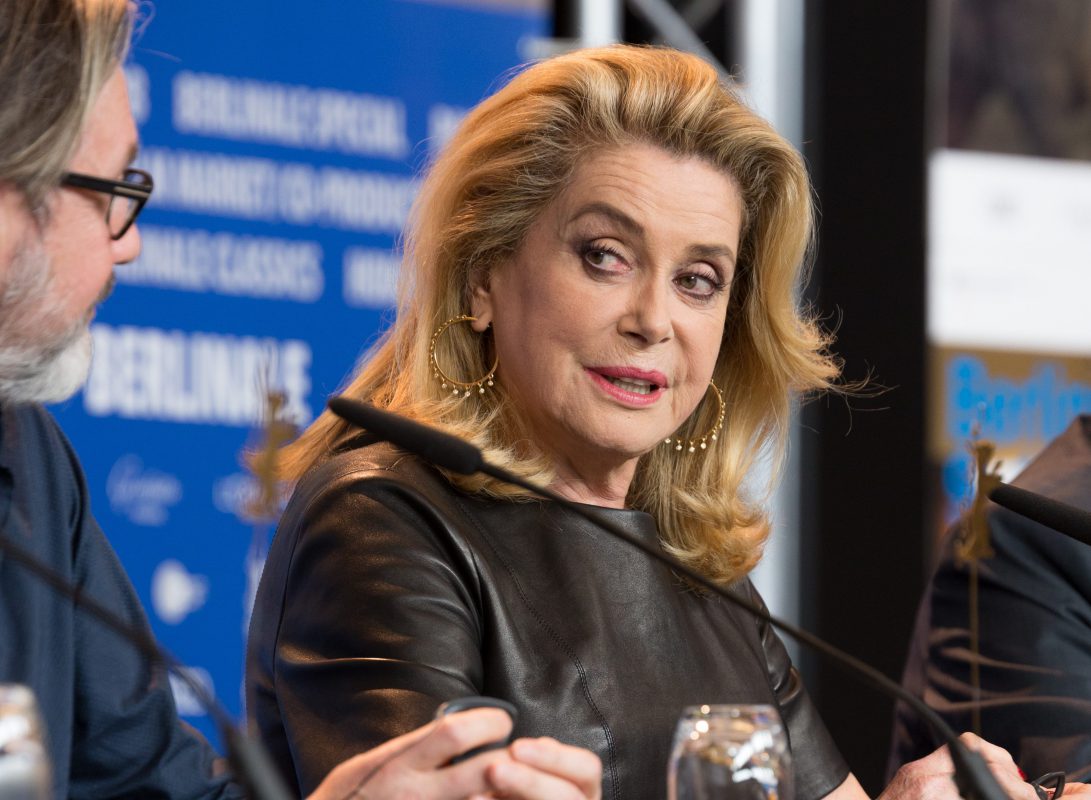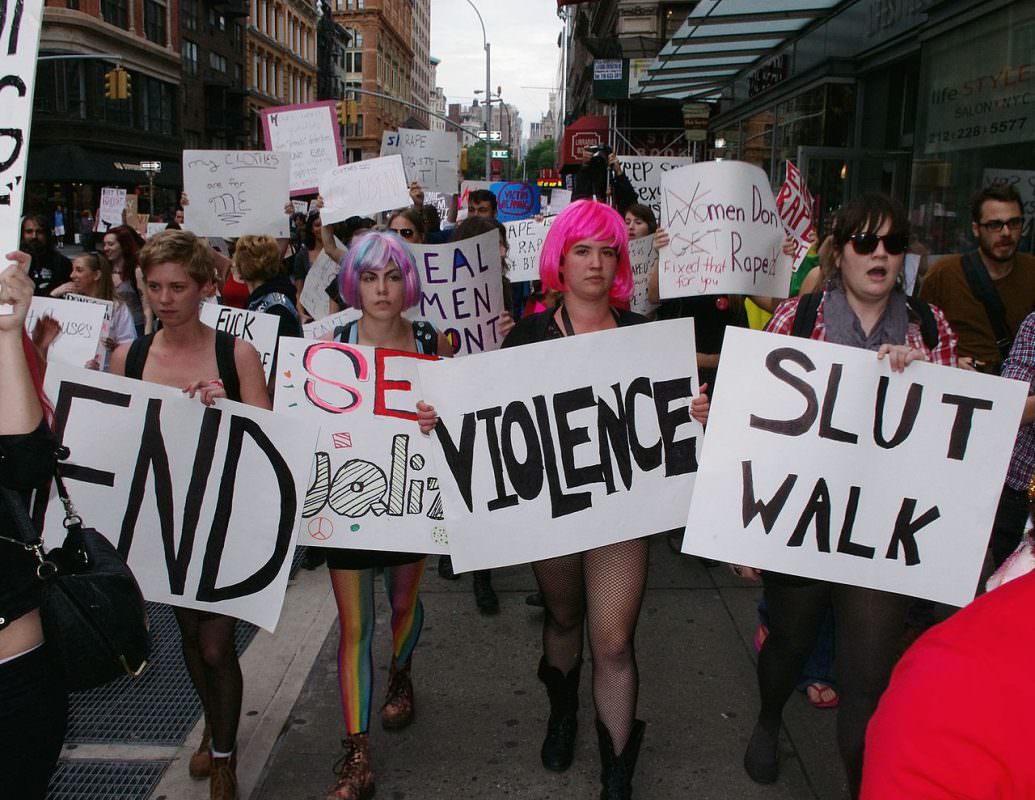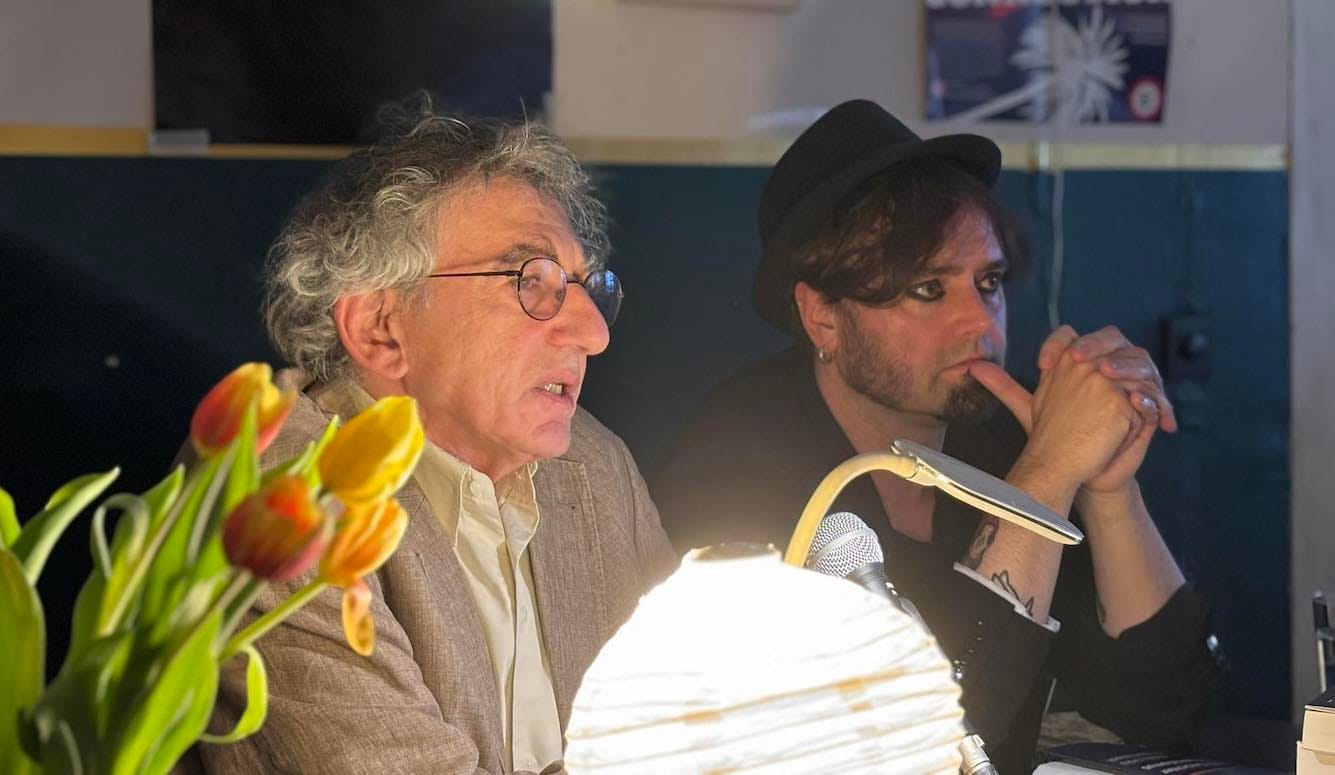Feminism
Catherine Deneuve, #MeToo, and the Fracturing Within Feminism
The disproportionate backlash that Deneuve and her co-signers have incited is indeed a sign of the fracturing within feminism.

The letter signed by Catherine Deneuve and 99 other French women offering their take on the #MeToo movement and feminism has stirred many reactions both in France and internationally. Among the responses, the novelist Leïla Slimani wrote a beautiful and heartfelt piece in Libération affirming her right to freedom from being “importuned”. The use of the expression is deliberate to contrast with the original letter’s title which defended the freedom to importune.
Slimani’s article has been shared by many to express their disagreement with the Deneuve Letter. That the two opinions are made to sound opposing is, however, more the result of unclear vocabulary rather than conflicting ideologies. The list of odious behaviours that Slimani pleads that we should be free from—“a boss asking for sexual favours in exchange of a promotion” or “a man ejaculating on a woman’s coat”—shows that she and Deneuve are not talking about the same thing. No sensible person could possibly refrain from condemning these acts. The fault perhaps lies with the writers of the original letter, for not using more precise, or less ambiguous, language, yet the wave of attacks calling these 100 women “anti-#MeToo,” “misogynistic,” or “rape-apologists” are not simply the result of miscommunication. The disproportionate backlash that Deneuve and her co-signers have incited is indeed a sign of the fracturing within feminism.
https://twitter.com/CCriadoPerez/status/951028449422069760
In many ways, critiques arguing that the letter is anti-#MeToo are not only incorrect but off-topic. The letter’s main intent is to serve as a warning and call out an ongoing societal trend that goes beyond a current awareness of sexual harassment. The signatories indeed point the finger at a new representation of feminism that runs the risk of “installing a totalitarian climate on our society”.
The signs of a totalitarian climate are already with us. An Italian production of Carmen recently decided to change the ending of Georges Bizet’s opera to “stand against violence to women”. In this artistic anachronism, Carmen shoots her admirer Don Jose rather than killing herself. As the French philosopher Raphaël Enthoven argues, this dystopian approach strips art from its power and “condemns Bizet’s music to be no more than a simple ornament”.

Art can tell us a lot about how to be free from violence, outside of just violence towards women. Should Picasso’s Guernica be repainted in a stand against all war? It is not surprising that many signatories alongside Deneuve are actors, writers, photographers and singers. The “rectification” of art is an approach worthy of the worst Orwellian regimes, or a troubling episode of Black Mirror at the very least.
The nuance that the letter offers on the #MeToo movement was quick to be interpreted as a full opposition to its goals and victims. It is significant to note that the equivalent hashtag to #MeToo in France is “#Balance Ton Porc” (“squeal on your pig”). The phrase is troubling. The word “balance” in French has a negative connotation that advocates public denunciation rather than a sharing of experiences.
There is a growing fear that in the much-needed outpouring of #MeToo testimonies we risk losing some fundamental civil liberties that are the foundations of modern democracies. The very same principles, in fact, without which a just and equal society is impossible. A professor in political science at Sciences Po argued on the set of the show “C dans l’air” that wrongful accusations of sexual violence was a “lesser evil” and “perhaps the price to pay” to meet the goals of #MeToo, adding that “a just middle ground is not always necessary”. Therein lies the disagreement with the women of the Deneuve Letter. As a sign that this divide is not exclusive to France, the Canadian author Margaret Atwood ironically characterised the warring sides as “Good Feminists” vs “Bad Feminists,” defiantly taking the side of the latter.
She reveals to the reader that she has been called a “misogynistic, rape-enabling bad feminist” for refusing to abandon core principles of human and civil rights. She writes:
In times of extremes, extremists win. Their ideology becomes a religion, anyone who doesn’t puppet their views is seen as an apostate, a heretic or a traitor, and moderates in the middle are annihilated.
Atwood’s most well-known novel (at least in contemporary times) is The Handmaid’s Tale. The novel—and now award-winning TV series—is a quintessential work of “classical feminism,” as we may now have to call it. It describes a patriarchal society based on religious fanaticism, where the sexes are strictly divided, relationships are controlled, and reproduction is ritualised. Handmaids, whose function is to bear children, are made to wear dresses that cover their shape.
Historically, the emancipation from religion has been a key fight for feminism. This struggle spans from Olympe de Gouge’s criticism of Catholic marriage and her “Declaration of the Rights of Woman and the Female Citizen” (1791) to the “liberation movement” of the 1970s that led to the legalisation of abortion in France. Over 200 years of this defiance have defined feminism as it is represented by the Deneuves and the Atwoods. They show it in the letter by condemning a “puritanism” seeking to reduce the complexity, agency and individuality of women. It is now however at odds with a new wave feminism. One, which, ironically is unafraid of allying itself with conservative strains of Islam. According to “neo-feminist” Rokhaya Diallo, the hijab is not a sign of patriarchal religious oppression, but rather can be a symbol of emancipation.
Behind these ideological differences, however, lies a vitriol and distortion in the way opposing views are treated. There has been an attempt to silence the women of the Deneuve letter through several uncharitable and unfair methods. Suggestions that they were downplaying rape were numerous and were not only limited to the dark corners of Twitter. Lauren Collins in the New Yorker, for example, made the point that the letter “took a turn against the wrongness of rape”. A difficult task when the letter’s first sentence states “Rape is a crime.”
The other strategy seeking to delegitimize the voices of a hundred women has been to hold the colour of their skin and their social status against them. A counter-letter published in Mediapart made sure to point out that these women were primarily “blanches and bourgeoises” (“white and rich”). So much for the universality of #MeToo.
Yet the movement, stemming from the Harvey Weinstein scandal in Hollywood, found its strength in the union of women from all backgrounds sharing their experiences. Do the testimonies of the rich white women abused by Weinstein therefore not count either?
In a moment bordering the absurd, feminist Caroline De Haas accused the letter’s 100 women of being “allies of the pigs”, and putting more responsibility on women victims of sexual harassment than on the men committing the act. In May 2017 however, months before the #MeToo hashtag erupted, a group of women made a formal plea against widespread harassment in the streets of a Chapelle-Pajol, an area in the north of Paris which has a large migrant contingent. De Haas’ reaction then was to suggest an increase in the size of pavements. Worryingly, this ambiguous position is also present within President Macron’s government. Marlène Schiappa, Secretary of State in charge of Equality between Women and Men, has been pushing for the penalisation of harassment on the street—at Chapelle-Pajotlhowever, Schiappa’s reaction was perplexing. It wasn’t to show support to the women in question, but rather to tweet pictures of herself walking at night in the streets of the neighbourhood, claiming that there was nothing to worry about (before deleting the tweets).
#MeToo has since opened the eyes of many that abuse against women is occurring at all levels of society, irrelevant of race and economic status. The movement, however, stands to lose all of its fervour to identity politics and must be treated with intellectual honesty.
Since its publication, it is clear that both the letter itself and some of its defences on French TV have been ill-timed and undeniably clumsy. Some have been insensitive. A few signatories allowed themselves to be drawn in a conversation about rape and serious offences already criminalised in the existing system, which only serves to distract from the point of the letter. Catherine Deneuve recently addressed the reactions and chose to apologise to victims of sexual harassment. This was justified. Still, it does not take away from the importance of its message and the fact that it needs to be heard.
While the #MeToo movement has drawn attention to a scourge that has long remained silent and covered up, but any group-based movement driven by emotion runs the risk of exaggeration and excess. Today’s wave of feminism runs the risk of alienating not only men but many women too if it cannot brook dissent, when it distorts narratives, and when it shows a cavalier disrespect for the principles of a free society. #MeToo has exposed the fracture within feminism but feminism will need the Margaret Atwoods and Catherine Deneuves if it is to survive.






